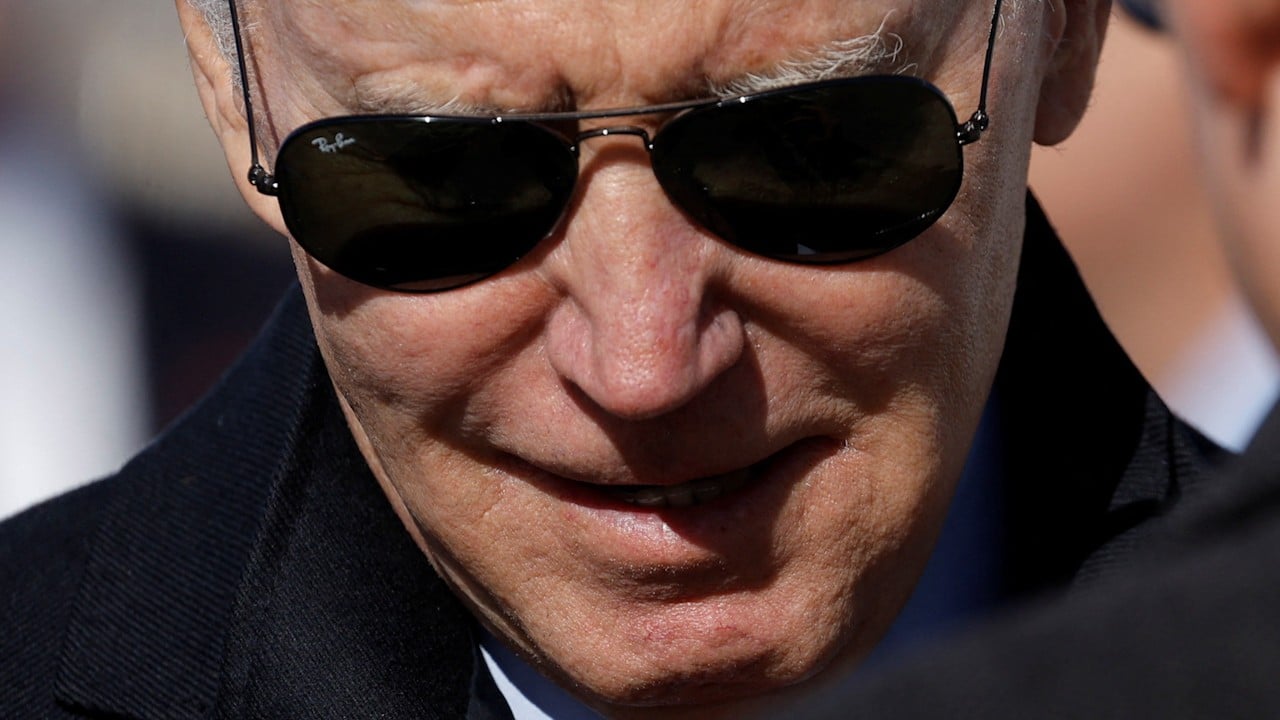
‘Economic Nato’ alliance, other ideas to counter China are proposed by US lawmakers
- Two Republicans recommend that US blacklists of Chinese companies, now maintained separately by the Treasury and Commerce departments, be consolidated
- A Democratic senator touts new framework to respond to ‘violations of sovereignty, economic coercion and retaliation by adversaries’
US lawmakers offered several new proposals to counter China on Tuesday, including an “economic Nato” and closer inter-agency coordination of differing blacklists to further restrict US investment in Chinese companies.
The ideas floated during hearings held by the House foreign affairs and Senate banking committees offer a glimpse of what is on the horizon for a new Congress that already has dozens of hard-line China-related bills under consideration.
“I have an increasing view that the United States has to lead the creation of an economic alliance among like-minded countries that can provide a framework for cooperative action in response to military aggression, violations of sovereignty, economic coercion and retaliation by adversaries,” Senator Bob Menendez, a Democrat from New Jersey, told the Senate Committee on Banking, Housing and Urban Affairs.
The hearing was focused on “advancing national security and foreign policy through sanctions, export controls and other economic tools”.
Menendez, who is chairman of the Senate Foreign Relations Committee, called a potential alliance “economic Nato”.
The idea was endorsed by Daleep Singh, a former deputy national security adviser to US President Joe Biden and one of the primary architects of American sanctions against Russia last year.
“It’s a fantastic idea, to look at where our collective strengths intersect with the target’s vulnerabilities and to move together,” Singh, now the chief global economist at PGIM Fixed Income, said at the hearing.
But Senator John Kennedy, a Republican from Louisiana, said the US should be “a bit tougher” on European allies to lower the price cap on Russian oil from the current US$60 per barrel, claiming that Europe was “totally dependent” on the US for its security.
Hong Kong trade offices in US targeted by new Senate bill
The Biden administration recently added more Chinese companies to its sanction lists because of their links to Beijing’s surveillance balloon programme and support for the Russian military.
More stringent measures to cut economic ties to China were also discussed on Tuesday in the Republican-controlled House of Representatives, where its Foreign Affairs Committee convened a hearing titled “combating the generational challenge of CCP aggression”.
The committee’s chairman, Representative Michael McCaul of Texas, agreed with Representative Andy Barr of Kentucky on the need for a consolidation of Chinese company blacklists now maintained separately by the Treasury and Commerce departments.
US businesses are restricted from selling chips and other hi-tech products to firms on the Commerce Department’s “entity list”, including telecoms equipment giant Huawei Technologies owing, over concerns that the Chinese companies will use the imports to develop “dual-use” technologies with military applications.

The Treasury Department blocks US investors from Chinese firms deemed to be involved in “military, intelligence, and security research and development programmes, and weapons and related equipment production under the PRC’s Military-Civil Fusion strategy”, as per Biden’s 2021 executive order.
While there are numerous Chinese companies, in some cases multiple subsidiaries, on both agencies’ lists, they are updated separately, allowing the amount of overlap to fluctuate.
“We need list coordination,” Barr told Alan Estevez, under secretary of commerce for industry and security, who appeared as a witness.
US joins EU in rejecting Beijing’s peace plan, sanctions more Chinese firms
“If we’re worried about export controls, if we’re worried about companies that are on this entity list, but American investors are … unwittingly financing these same companies, that’s a problem,” Barr said. “We’re going to be talking to Treasury about that problem. You’ve got a good entity list, but we need coordination so that we’re not unwittingly financing these technologies even if we have export controls.”
Representative Young Kim, a Republican from California who sits on the committee, called for “harmonisation” of another list tracking Chinese companies with suspected ties to Beijing’s military with the Commerce Department’s entity list.
The US Defence Department is obligated by the National Defence Authorisation Act of 2021 to publish its list of “PRC military companies”, which are considered by the Pentagon to be part of Beijing’s military-civil fusion.
US sanctions 23 more Chinese firms over Xinjiang, military and business ties
While the US government “reserves the right to take additional actions against” companies on the Pentagon’s list, most – including CRRC Corporation – are not subject to the sanctions faced by those on the Treasury and Commerce Department lists.
CRRC, the world’s largest maker of passenger trains, has contracts with several US municipal governments, including Boston and Philadelphia. Young said the fact that CRRC was not on the Commerce Department’s entity list was “a glaring omission”.
Agathe Demarais, global forecasting director of the Economist Intelligence Unit, said in a webinar on Tuesday that sanctions work better when the US engages with allies and does not impose them unilaterally.
“Sanctions are a bit like antibiotics … if you use them too much, then you have ripple effects,” she said.
Additional reporting by Bochen Han in Washington



